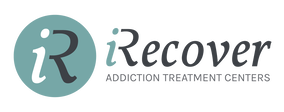You’ve Decided To Quit Drinking/Drugging: Now What?
“That’s it.
I’ve had enough of the booze and drugs
and I’m quitting!”

If you’re like many who struggle with an addiction to alcohol or drugs, you’ve probably said that a time or two. However, it might not have been as easy as you imagined to give it up for good. After all, your brain has probably become quite used to the “hit” it has gotten from your drug of choice and doesn’t really care for the thought of not getting it anymore.
It is likely your decision to quit drinking or using drugs is one you’ve probably been weighing for a while now. Perhaps one of the following applies to you:
- You’re tired of waking up with hangovers
- You’ve experienced relationship difficulties due to your addiction
- It has cost you a lot of money
- Perhaps your health is suffering
- You’ve gotten in trouble with the law
Regardless of your reason, congrats on your decision to quit! That’s the first step toward a new and better life – sober. The kind of life where you can begin afresh, creating a meaningful and fulfilling life.
You’ve Put The Drink (Drugs) Down:
Now What? The thing about quitting drinking or drugging is that quitting is just the beginning of your recovery. Sure, getting through any detox symptoms counts for something, but recovery goes beyond that.
It is likely that you’ve got some other issues to work on in addition to addiction recovery. There have been many people who put the booze down or stopped relying on a drug to “chill out” that continued living a life marked with anxiety, depression, anger, unstable relationships, and more. One of the reasons is that they didn’t really do much beyond quitting the addictive substance. In other words, they didn’t really “do the inner healing work” that had the potential to bring radical change into their lives for the better.
Ever hear the term “dry drunk”? Basically, it describes someone who has stopped drinking, but carries on with the same emotional or behavioral patterns as when they were drinking. Examples include erupting in rage when spouse doesn’t do what is expected, being incredibly mean to others, or engaging in reckless behavior. They’ve simply put the bottle down, but don’t do any “inner work” to address emotional or behavioral issues.
It is Time To Start Digging
Addiction specialist Gabor Mate says that in all his years of working with those struggling with addiction, most of them experienced some sort of past trauma or abuse as a child. No doubt the chronic stress associated with traumatic experiences impacted their emotions and mental health. Therefore, just putting down the drink won’t magically heal those traumas. They’ll still be somewhere in your subconscious slyly infiltrating your life likely in a negative way. Some call this your shadow – or that part of you that’s lurking in the dark recesses of your psyche, sitting there hoping you’ll start digging to find it and set it free.
Quitting drinking or drugs might feel daunting. Even though you want freedom, there’s that part of you that’s freaking out at the thought of abstaining. However, perhaps if you look at it as an opportunity to dive in to dig up things that you’ve been hiding from emotionally – to face and heal – you won’t feel so reluctant. Or afraid.
You might even get a little bit excited!
How Addiction Treatment Can Help
Quitting drinking or drugging will put you on a path toward truly facing reality. Maybe you’ve been numbing out or running from inner pain. It can feel scary to feel such strong emotions, for sure. However, when you stop the addictive behavior and use a supportive person or network to help you sort through that inner pain, you’re well on our way to experiencing healing and freedom.
This is why addiction treatment centers are so important, as they employ addiction specialists and therapists that can help you begin digging through layers you’ve piled up over the years. Layers like trauma, abuse, grief, anger, fear, and so on. Committing to a time period in an inpatient or outpatient treatment center allows you to learn how to heal such emotions and begin coping with life and all its twists and turns – sober. You’re surrounded by caring and compassionate people who can help you:
- Learn what your triggers are how to cope with them
- Learn effective coping and conflict resolution skills
- Learn how to improve your relationships or build any bridges you’ve burned
- Find a support group in your community that you can attend long-term
- Get your life back
It is Time To Get Free
Whether you’ve already decided to quit drinking or drugging, or if you’re contemplating it, know that you don’t have to go at it alone. You might feel alone, but there are many professionals in your corner rooting for you. They’re ready and willing to help you stop the addiction and begin healing what may need healed inside. They’re able to help you learn how to navigate life without running, numbing, or living sad, miserable, angry, or hopeless. You simply have to take that first step and reach out for help. That first step might feel scary, but it is well worth it, as you’ll be met by loving and compassionate people who will help you get through to the other side of addiction – freedom!
Reach Out For Help
There is a way out of addiction, and here at iRecover Treatment Centers, we’re here 24/7 to assist you. Give us a call at 877-387-4155 and get started on your recovery journey now.
Ready to take the next step on the road recovery?
Give us a call at 1-877-387-4155. We are available 24/7/365.
If your loved one needs addiction treatment, know that professional help is available and helpful. Here at iRecover Treatment Centers, we’re here around the clock to assist those in need in any way we can. Addiction treatment in Canada can be just what your loved one needs to get free and begin creating the kind of life they truly desire.
